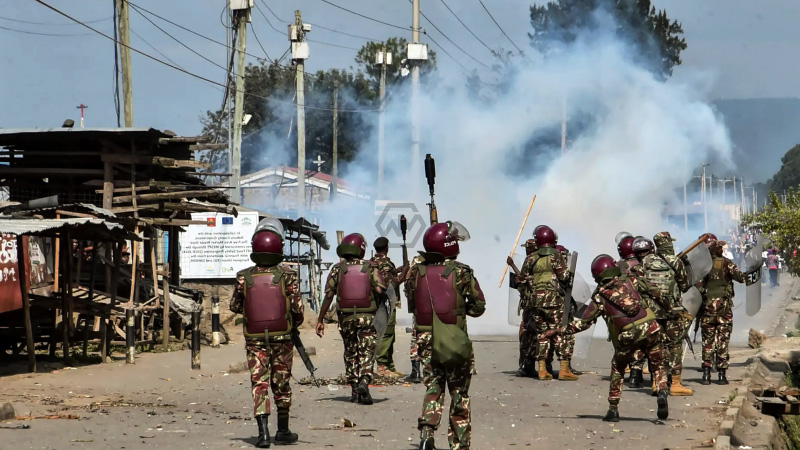- Kenya’s youth-led protests demand economic justice, police reform, and government accountability.
- Over 30 killed in the deadliest protest since the unrest began.
- President Ruto faces rising calls for change ahead of the 2027 elections.
Kenya is at a political crossroads as a surge of Gen Z-led protests sweeps across the country, demanding economic fairness, an end to police brutality, and greater accountability from the government.
President William Ruto now faces a critical test of leadership. His government’s reliance on force has drawn condemnation from rights groups, religious leaders, and the United Nations.
A Nation on Edge: Can President Ruto Survive Kenya’s Gen Z Uprising
The July 7 protests, timed to coincide with the anniversary of Kenya’s historic 1990 Saba Saba movement, were meant to honor the country’s long journey toward democracy. Instead, they turned into a tragic flashpoint, with live ammunition, tear gas, and water cannons used against mostly peaceful demonstrators. Among the dead was a 12-year-old child struck by a stray bullet—an incident that has sparked outrage and renewed calls for justice.
Kenya’s younger generation is organizing outside traditional political channels, using social media platforms to coordinate protests and amplify their demands. This decentralized, leaderless movement has made it difficult for the government to contain or negotiate with. Many Gen Z activists argue that politicians from all parties have failed to address youth unemployment and systemic inequality, and they are increasingly taking matters into their own hands.
The government’s narrative—that protests are criminal or even tantamount to a coup—has been met with skepticism. Interior Minister Kipchumba Murkomen’s framing of the unrest as a security threat has done little to calm tensions. Meanwhile, opposition leaders accuse the state of deploying armed gangs in unmarked vehicles, inflaming an already volatile situation.
The resignation of senior presidential advisor Moses Kuria, though not explicitly tied to the protests, has added to speculation about growing divisions within Ruto’s administration. As investor confidence dips and civil unrest escalates, Ruto faces mounting pressure not only to protect his image but also to stabilize Kenya’s democracy. Whether he can shift from repression to reform may determine the nation’s trajectory—and his own political survival.
Kenya’s youth have found their voice, and it echoes with urgency. If President Ruto fails to listen, the “one-term” label may become a self-fulfilling prophecy.
“Those who make peaceful revolution impossible will make violent revolution inevitable.” — John F. Kennedy



